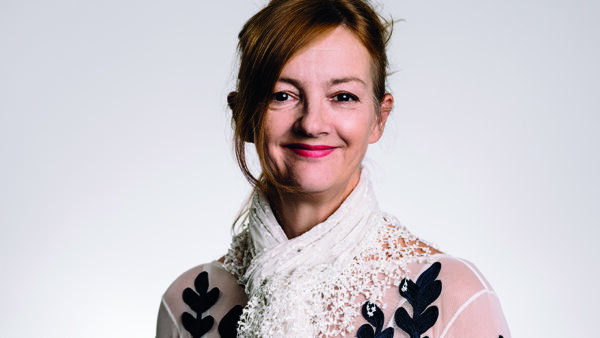‘Modern professionalism is central to changing construction culture’
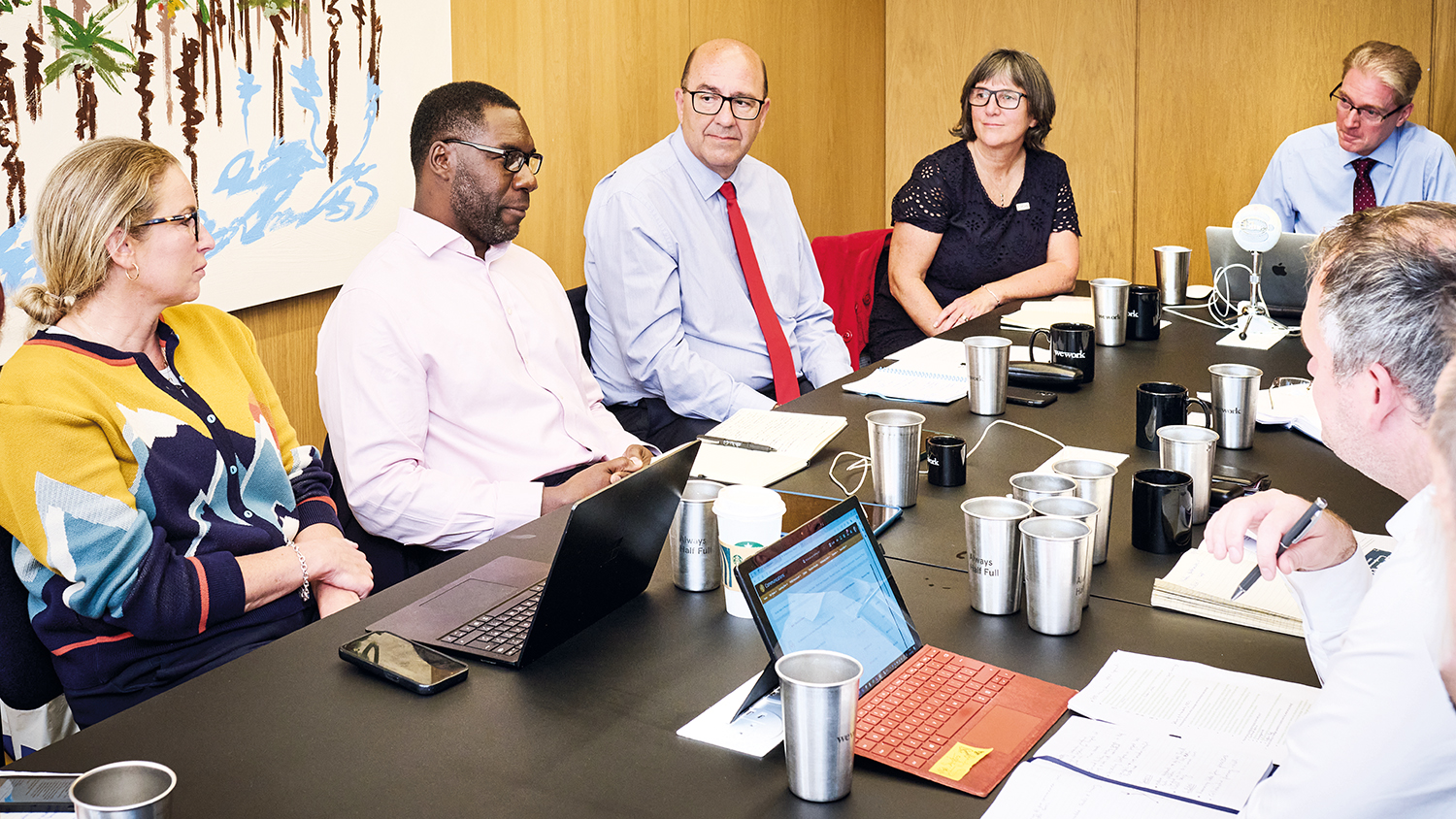
CIOB convened a panel of construction clients, contractors and other influential figures to discuss the role of ‘modern professionalism’ in a changing industry. Justin Stanton chaired.
Caroline Gumble: The theme for our discussion today is modern professionalism, but I feel it’s important to reflect on the recently published Grenfell Tower Inquiry report. Everyone in the construction sector should read the report, which can instigate real behavioural and cultural changes in the industry.
Modern professionalism is the overarching theme of CIOB’s corporate plan leading up to 2028 and beyond. Professionalism needs to evolve to meet society’s changing needs and respond to new challenges. The Grenfell report is a reminder that professionalism means not only accredited competence but also strong ethical conduct, driven by a clear moral compass.
Register for free or sign in to continue reading
This is not a paywall. Registration allows us to enhance your experience across Construction Management and ensure we deliver you quality editorial content.
Registering also means you can manage your own CPDs, comments, newsletter sign-ups and privacy settings.
At CIOB, we aim to ensure high standards of quality, safety and sustainability, while addressing the skills gap that continues to grow. The public’s perception of construction can sometimes be negative, but there is a growing appetite within the sector to focus on quality, competence and safety. I encourage all of you here today to share your knowledge and experiences.
The Panel

Justin Stanton: We’ll begin by asking the contractors how their organisations promote the core values of quality, competence, safety and strong ethics.
Paul Gale: What we’re trying to do is attract a broader range of talent. A personal example is my daughter, who studied history and international relations and now works for us as a social value manager. This role is increasingly important in today’s industry, but I don’t think students realise the breadth of roles available to them. We need to drive this message forward.
Chris Linfoot: For me, continuous improvement is at the heart of modern professionalism. At Willmott Dixon, we have an internal university system, and what stands out is the people who are passionate about learning. They’re not just attending training sessions to tick boxes.
One major challenge we’ve identified is psychological safety. People need to feel comfortable admitting mistakes and sharing their lessons. Our best improvements often come from projects where people have felt safe enough to say: “I didn’t do this right.” This creates an environment for continuous improvement.
Rhys Sumpton: We’ve also focused on upskilling our current workforce, including those who have been in the industry for decades. Many experienced workers, whether managers, supervisors or tradespeople, entered the industry at a time when issues like sustainability weren’t priorities. Change is difficult, so we’ve employed behavioural science to encourage this shift.
For example, our site managers often default to using the equipment they’re familiar with, rather than exploring new, more efficient tools. An example is a vacuum excavator for working around utilities rather than a conventional excavator. We need to change that mentality by encouraging them to embrace innovation.
JS: Adam, at the Southern Construction Framework, you work with both contractors and clients. What’s your view?
Adam Sanford: We focus on public sector projects, which face significant resourcing challenges. We are exclusively two-stage, open book, as we believe it ensures the best delivery for the public sector. A good framework provider connects expertise across the supply chain and ensures consistency for clients, particularly regarding social value, biodiversity, and compliance with evolving regulatory requirements.
We’ve focused on recruiting based on ethics and culture rather than specific technical backgrounds. This has increased diversity in our team, allowing us to blend traditional and disruptive approaches, and bring in fresh perspectives.
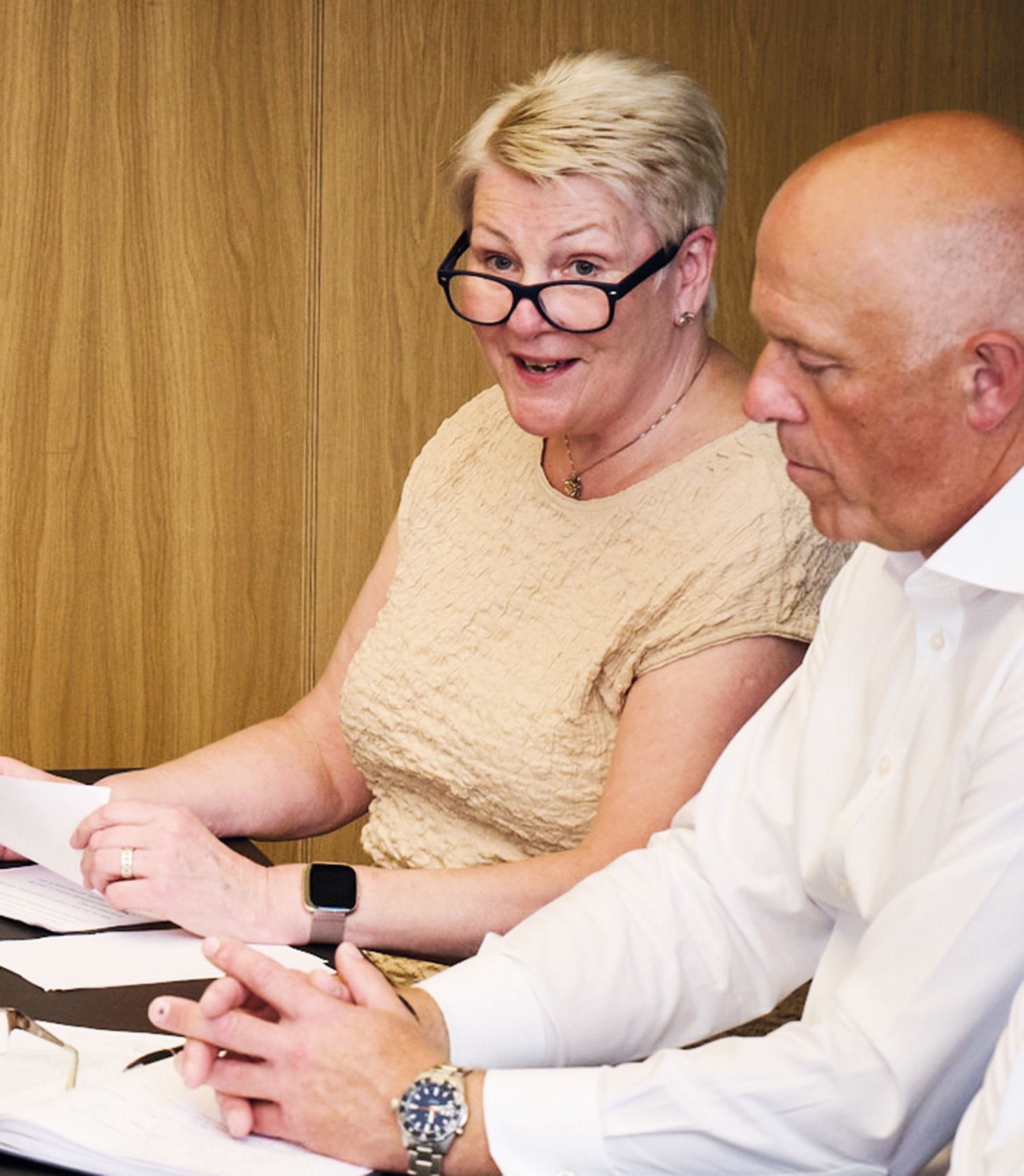
Lynn Summerfield: Professionalism is about culture and behaviour. Having worked both as a main contractor and now as a client, I see challenges from both sides.
British Land is leading the private sector construction playbook, which focuses on changing behaviours and culture. I led a complex project at Norton Folgate in London where we prioritised team behaviour over technical challenges. The result was an amazing end product, completed safely, with everyone committed to the project. The right behaviours not only create value but also lead to a better project experience.
“I led a complex project where we prioritised team behaviour over technical challenges. The right behaviours not only create value but also lead to a better project experience.”
Laura Bryant: I’d add accountability to the focus on integrity and ethics. In the past, we’ve worked in silos, focusing on our individual roles, but now it’s important to understand the bigger picture.
At Greystar, we try to break down silos through our graduate programme by giving new recruits a range of experiences across development and operations. We encourage them to speak to residents and understand their needs, which leads to better buildings.
Post-Grenfell, we’ve also emphasised open dialogue in the industry to share best practices and discuss failings honestly. It’s vital that younger generations are involved in these conversations. They bring fresh ideas and are not afraid to challenge the status quo, which can lead to innovation and improvement.
Linda Stevens: Clients have the power to influence every aspect of a project, including a collaborative culture, from the outset – which is the essence of the CIOB Client Strategy. Our aim is to help clients set up their projects for success.
Mike Kagioglou: The focus of my presidential year is the United Nations Sustainable Development Goals, and they encompass all the behaviours and outcomes we strive for, such as ethical practices.
Ayo Allu: Great points so far. I want to highlight three things about modern professionalism. First, it needs to be set at the project’s inception. Second, many professionals need to grasp the wider economic and social challenges of the industry, which can help them make better decisions. Third, behaviours are shaped by structures, such as procurement processes. We need to design these structures to encourage collaboration.
Lynn S: I agree, Ayo, structures are crucial. But if the people putting them in place don’t believe in them, they won’t work. I’ve seen clients choose collaborative contracts, but if they don’t commit to the collaboration, it fails. As clients, we have a responsibility to lead by example, creating trust within the team.
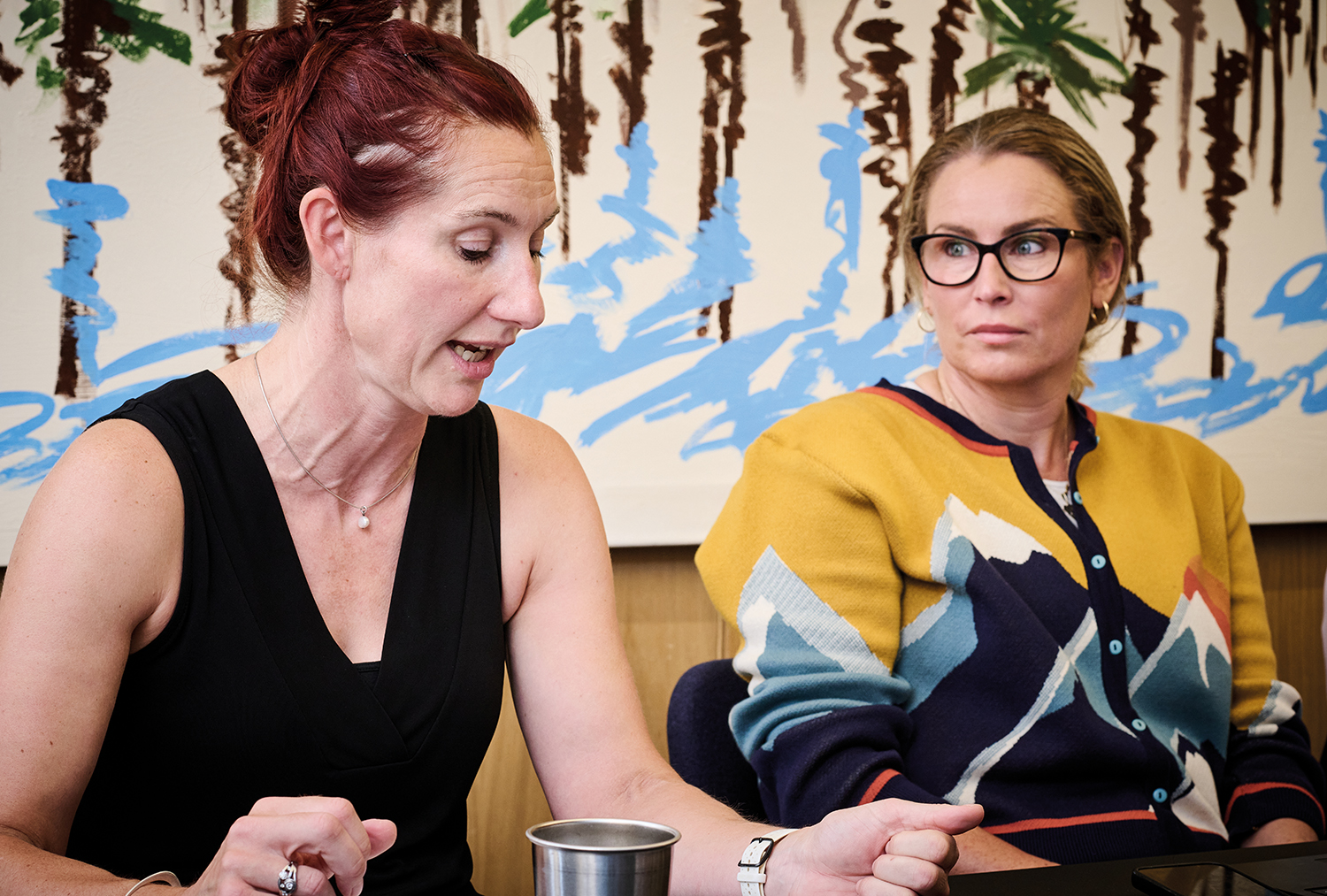
AA: Absolutely. Framework leaders and good clients understand the need for collaboration. Within reason, clients need to foster an environment where, if a contractor realises they’ve made a pricing mistake, they can come forward without fear. The client should be willing to find a solution that doesn’t leave the contractor out of pocket.
Lynn S: Yes, if the procurement process goes wrong, it’s hard to recover during delivery. A difficult procurement leads to increased pressure on the delivery team, and that can compromise safety and quality.
PG: We often review projects that go wrong, but we don’t do the same for projects that go well, as much as we should do. We should always capture lessons from successful projects so we can replicate that success in the future.
Lynn S: We did a lessons-learned exercise on Norton Folgate, which we thought went well. The feedback was positive, with a bias towards the benefits of the co-working space on site and leaders being accessible.
“We’ve seen that projects with difficult pre-contract periods often have better long-term outcomes. By having those tough conversations early, we avoid problems later and build stronger relationships.”
RS: Many contracts only measure success based on time and money. But we worked on a project where the client introduced a broader set of KPIs, including environmental impact and apprenticeships. This allowed us to celebrate small successes along the way.
AA: Clients have the advantage of seeing the full life cycle of a project, from design to operation. Sharing this long-term vision with the construction team can help them understand the impact of their actions. If contractors know their work contributes to a project’s success 60 years from now, it adds value beyond just meeting short-term financial goals.
CL: We’ve seen that projects with difficult pre-contract periods often have better long-term outcomes. By having those tough conversations early, we avoid problems later and build stronger relationships.
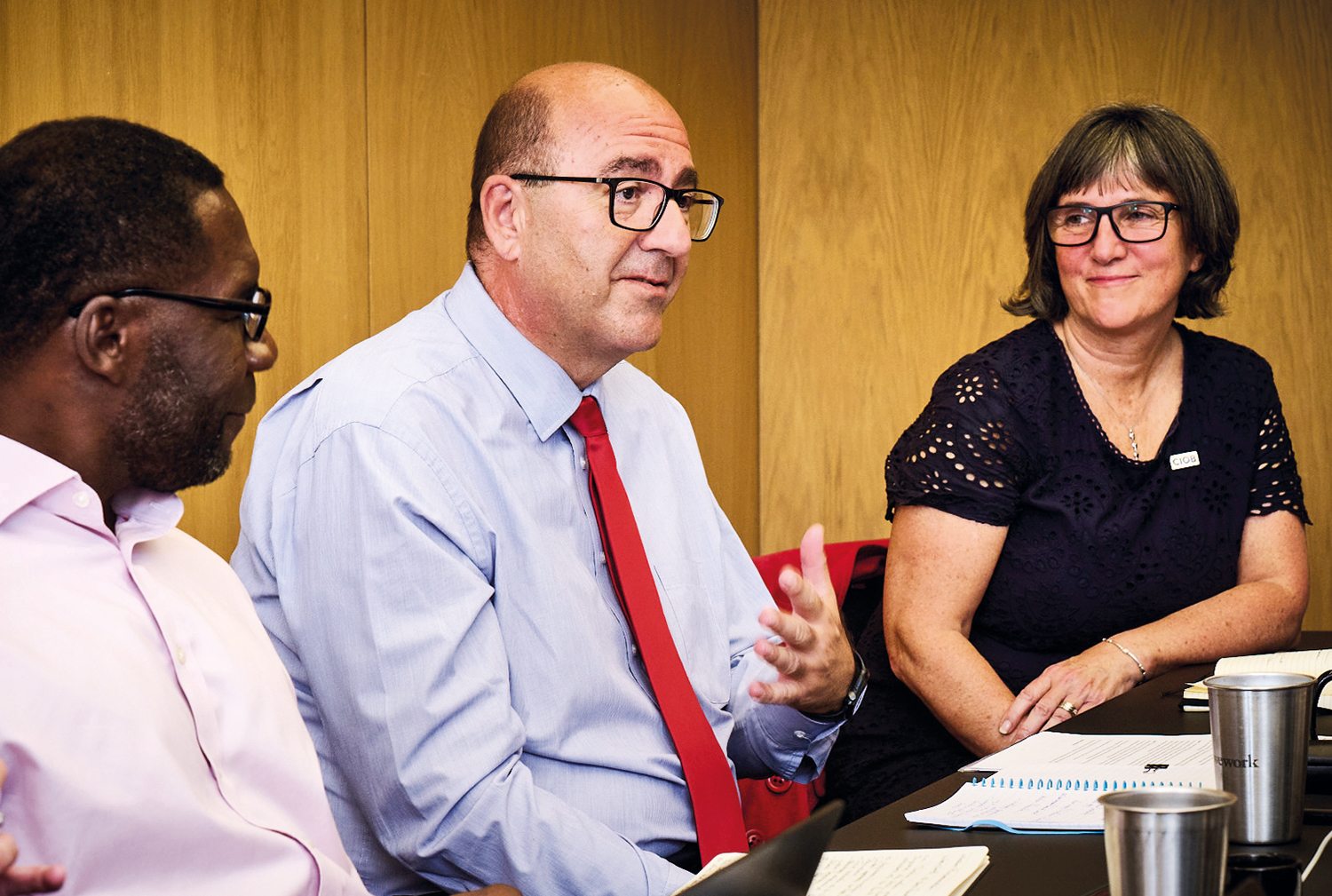
Lynn S: It’s also vital to have open discussions with trade contractors early on. While clients often share negative experiences during the preconstruction phase, I believe these difficult conversations are essential. If these issues aren’t addressed initially, they’ll resurface later, making it harder to manage relationships.
CL: I agree; if we delay these discussions, it can lead to deeper trust issues later.
PG: Trust is foundational for effective collaboration. Without it, evaluating the project team’s performance becomes difficult, especially for less experienced clients who may not recognise what constitutes good practice.
AS: Trust and collaboration are indeed vital but must be backed by robust contractual frameworks.
Lynn S: I agree that contracts set the rules, but over-reliance on them can create a negative atmosphere. A balance is needed between contractual obligations and fostering trust within the team.
“Creating an appealing working environment is crucial for younger generations.
Recent graduates need that in-person interaction to thrive in a physical industry like construction.”
AA: Contracts can be designed to encourage positive behaviours. For instance, a recent project adopted a model where all parties agreed on fixed profit margins from the start, promoting collaboration.
Lynn S: That approach hinges on accurate profit declarations. If contractors understate their needs, it complicates trust.
AA: In our procurement, we ensured all contractors submitted realistic bids based on market standards, fostering a transparent environment.
PG: This highlights the importance of aligning contractual obligations with the spirit of collaboration. If leaders don’t reinforce these values, they risk creating a disconnect.
Lynn S: So, even if there’s consensus among leaders, the real challenge is ensuring that those values permeate through to project execution. We need to emphasise a culture that values these principles.
JS: So how do we build a strong culture in project teams?
AA: In many organisations, the culture is heavily influenced by a single figurehead. It’s crucial to examine what kind of behaviours and values these leaders should exhibit to foster a positive culture.
CL: Post-pandemic, the way we work has shifted significantly. Historically, long hours were the norm in our industry, but we are striving to adapt. Flexibility is now a significant focus, allowing jobs to accommodate employees’ daily lives.
However, achieving this balance remains challenging. Face-to-face time is essential, especially in construction, where site presence is mandatory. We need to navigate different work patterns while considering childcare needs and various personal situations, but there isn’t a one-size-fits-all solution.
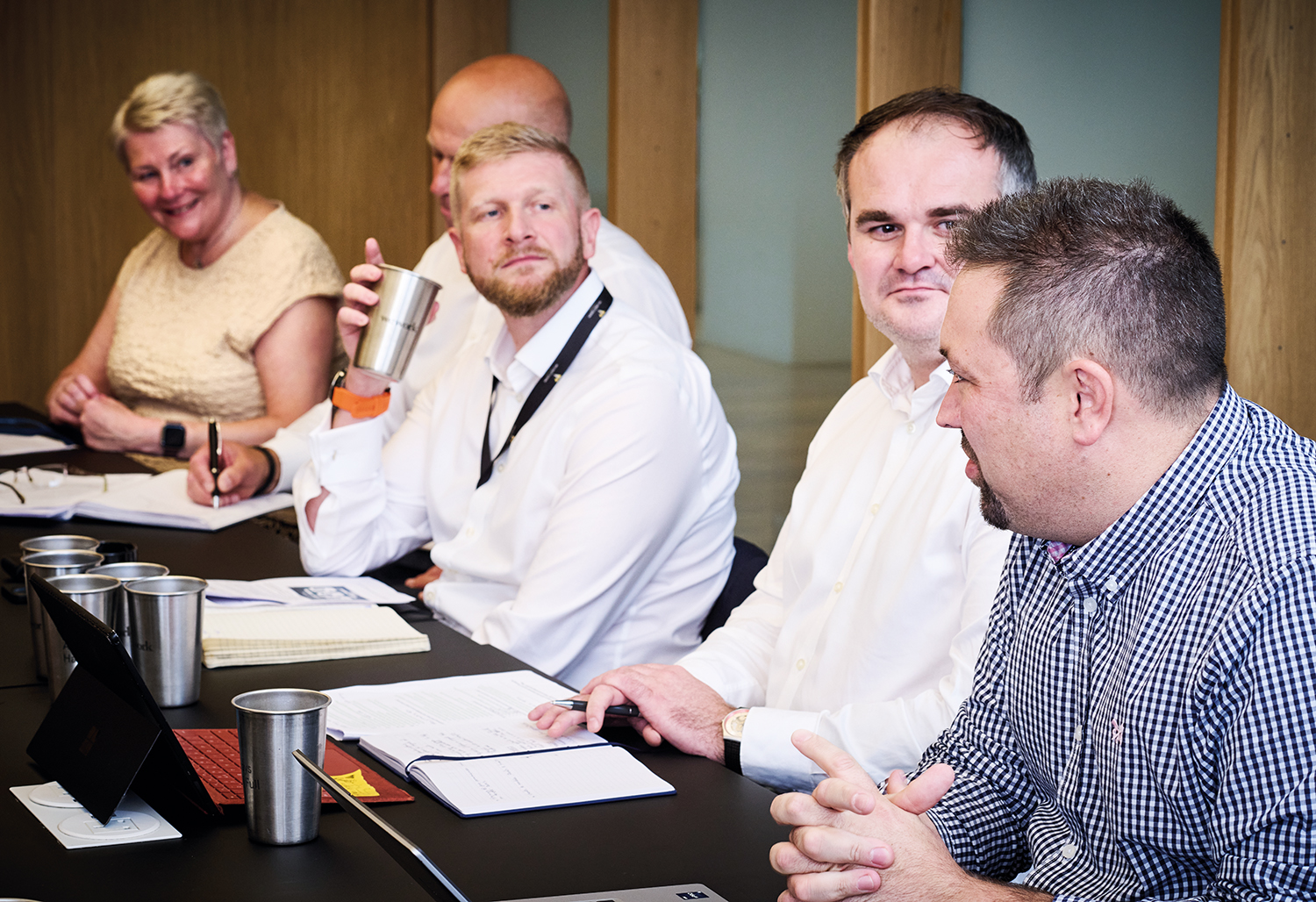
Lynn S: Is this flexibility linked to staff retention and recruitment? How can we balance flexibility with collaboration and the professional development of younger employees?
LB: Creating an appealing working environment is crucial for younger generations. While experienced professionals may manage their own schedules, recent graduates need that in-person interaction to thrive in a physical industry like construction.
“I’m involved with a reverse mentoring scheme which allows junior members of the industry to mentor more senior professionals, addressing the traditional structure.”
AS: We must also acknowledge the professionalism of trades. Whether carpenters or electricians, they deserve recognition and the same flexibility as other professionals. This respect is crucial for fostering a trusting work environment.
RS: We’ve incorporated flexibility into employment contracts, but many employees prefer a structured work environment. Despite the right to remote working, there’s a strong desire for in-person collaboration, particularly among younger employees.
Lynn S: Construction projects are inherently temporary, so creating a sense of belonging is crucial. We need to help team members feel connected to both the project and the broader company objectives.
JS: What are the typical processes for new starters to voice their opinions and concerns? Is there a genuine openness to listen to these insights from senior management?
PG: We facilitate feedback through anonymous channels, allowing new colleagues to express their views on the organisation’s strengths and weaknesses without fear of repercussion.
RS: We have anonymous channels, but we also use a platform for live communication, where employees can share ideas and social opportunities. This encourages interaction and fosters a sense of community within the organisation.
Lynn S: In British Land, we have an internal mentoring programme, which I’ve participated in as both a mentor and a mentee. This dual role provides valuable insights and learning opportunities. participants can gain exposure across various departments, enriching their experience.
AA: I’m involved with a reverse mentoring scheme which allows junior members of the industry to mentor more senior professionals. The shift allows younger professionals to influence the mindset of senior management, addressing the traditional hierarchical structure.
AS: It’s crucial to distinguish mentoring from day-to-day line management. The best mentoring relationships often occur between individuals who do not interact regularly in their professional roles. This arrangement fosters a candid dialogue, free from the constraints of everyday managerial relationships.
JS: Returning to where Caroline began, the Grenfell Inquiry report and building safety, how do you all expect this to have an impact in your organisations?
AA: The spectre of personal accountability, including potential legal repercussions, has altered the conversation. Everyone involved must acknowledge their responsibilities.
AS: Fostering a culture where whistleblowing is safe is crucial. Organisations like CIOB play a significant role in maintaining professional standards and supporting individuals who raise concerns about unsafe practices.
PG: One key takeaway from recent events is the need to work cohesively rather than in silos. Fragmentation will hamper progress, collaboration is essential.
“Fostering a culture where whistleblowing is safe is crucial. Organisations like CIOB play a significant role supporting individuals who raise concerns.”
AA: Legislation can certainly help, but merely adhering to minimum standards has often been an excuse for subpar practices. We should aspire to exceed these standards to ensure a culture of safety and quality.
LB: The focus must shift to prioritising residents’ needs rather than simply meeting existing regulations. Often, regulations serve as the bare minimum, not the gold standard for construction quality and safety.
JS: Finally, I’ll hand back to Mike, Linda and Caroline for their concluding comments
MK: I’ve been energised by this discussion; it highlighted the significant cultural change required in the sector. It was interesting to discuss the agents of change, including the role of contracts, the impact of young people coming into the sector and the idea of recruiting based on ethics and values.
Linda S: Today’s discussion has been timely, as we’re working on the second edition of CIOB’s client guide, central to our resources for clients. I’m pleased to say that much of what has been discussed today aligns with the client guide. The strategy also encourages opportunities for knowledge sharing and celebrating success that we will follow up on after today.
CG: CIOB is here for society’s benefit and our client strategy is key to that. We want to influence clients to make the right decisions; if they create the culture, if they get things right at the beginning of projects, then we will all see long term benefits. This is a journey of nine to 10 years – but it is crucial to the objectives we have at CIOB.



